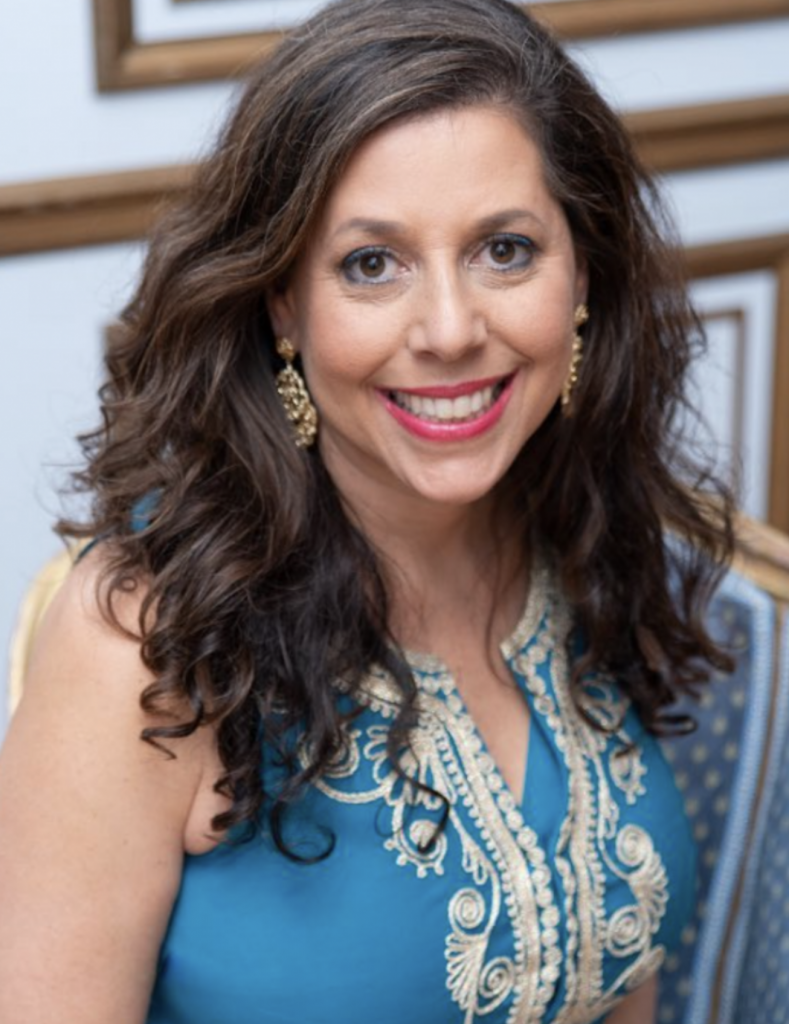Living a Full Life with Cancer
- Tami Eagle Bowling is celebrating nine years living with metastatic breast cancer and says it wasn’t until she “started to embrace uncertainty” that the mom of two was able to truly start living.
- The motivational speaker, who developed The Eagle Method corporate wellness platform to help women “make every day meaningful,” dedicates her life to raising awareness and raising funds for breast cancer research.
- Anxiety and fear are normal reactions to the news that you have breast cancer, especially when you learn it’s advanced stage. Acknowledging these emotions can be therapeutic and important to the healing process. Never be ashamed to ask for help navigating those fears.
- If you have been diagnosed with late-stage breast cancer, know that there are more promising treatment options than ever before to improve your quality of life.
The Eagle Method motivational speaker, who uses her insights to help other women “make every day meaningful,” wants to remind people with advanced stage cancer that they are not a statistic.
Read More
On Monday, Tami is co-producing The Janice Jam, the second annual Broadway for Breast Cancer concert in New York City. The event, which benefits the Breast Cancer Research Foundation (BCRF) will be held at Haswell Green’s in the Theater District.
Tami is also a producer and global campaign director for Light Up MBC, an annual event that “educates, raises funds and shines a light on stage 4 metastatic breast cancer research,” the METAvivor.org website states.
Literally shining lights globally — in green, teal and pink — Light Up MBC illuminates landmarks like Niagara Falls, New York City’s Penn Station, LAX airport and nearly 300 other prominent sites across the country and overseas on October 13.

Continuing Thursday’s post (with her signature Eagle emojis), Tami highlighted some of the things she is celebrating on her special day:
🦅Today I celebrate scientific breakthroughs and the people dedicated to achieving them.
🦅Today I celebrate the ability to taste the deliciousness of chocolate chip pancakes.
🦅Today I celebrate the kisses I have with my children each day and night.
🦅Today I celebrate being able to give others hope by sharing my story and resilience insights through The Eagle Method.
🦅Today I celebrate you, my network and village, for supporting me with your comments and outreach through the years.
🦅Today and every day I celebrate being alive!
“⭐️And every night I dream of a cancer free future for all affected by this disease.⭐️,” she added.
In her conclusion, Tami shared something we can all strive for, whether we’re living with cancer or another challenging health situation, “Life is always going to throw us challenges that we don’t always know how to handle. If you focus on what you can control, take some risks and lean in to your relationships, you will move forward in ways you never knew you could.”
Tami Eagle Bowling’s Story
Tami Eagle Bowling, who has had a longtime career in publishing working for iconic outlets such as Marie Claire and Teen Vogue, was diagnosed with metastatic breast cancer at age 41.
She had no history of breast cancer in her family.
After doctors found some “concerning spots” in her left breast and one of her lymph nodes, Bowling received the gut-wrenching news that all spots were malignant; it was cancer.
RELATED: Handling Fear When You Get the Diagnosis
“It took me a little bit to digest that, and then I thought, ‘you know what, I don’t need my boobs, I don’t need my hair,’ ” Tami recalled in a previous interview with SurvivorNet.
Then she had a PET scan to scan her entire body for cancer. Like many patients, she had no idea that breast cancer could even spread, but tragically, the exam “lit up” in her liver, she said.
A Stage 4 Cancer Diagnosis
“‘This means you have stage 4 cancer,’ ” Tami relayed of what her doctor told her. They said that she probably had two or three years left, which clearly, they were wrong.
Tami has been living with the disease for nine years, and so are so many other women. While Tami says the loss in the community is great, more and more women are living for many years beyond what they are told.

However, like most parents hearing the news they have cancer, the first thing Tami thought of was her kids and how she needs to be here for them.
Two months later, she was asked to speak at an event. Admitting she needed “purpose” to live life with this diagnosis, Tami decided to do everything in her power to raise awareness and work hard to raise funds for research, “to help save the lives of so many people affected by stage 4 breast cancer.”
Thus, the Eagle Method presentation was born.
Telling Your Kids You Have Cancer: “When It Comes to Your Kids, You Want to Protect Them’
“I go into different corporations and talk to them about how to overcome adversity, build resilience, and accept the unknown, so that you can live with purpose and make each day meaningful,” she describes of her inspirational business, which she started during the mass uncertainty of the pandemic.
Tami started doing more and more speaking engagements and even won a local humanitarian award seeing firsthand how she was helping other women. However, with these events, she has also experienced too much loss, losing numerous friends along the way.
“I am constantly reminded to channel my grief toward advocacy, because stage 4 needs more.”
Handling Fear After a Diagnosis
Anxiety and fear are totally normal reactions to the news that you have breast cancer, especially when you learn it’s advanced stage. Acknowledging these emotions can be therapeutic and important to the healing process.
So how do you confront your fears without letting them take over entirely? Here are some helpful tips from our medical experts:
1. Let your family and close friends know and let them help. So many cancer survivors tell us they want and need support but are often too preoccupied to make specific requests. Urge those close to you to jump in with whatever practical help they can offer.
2. Keep a journal. It can be extremely cathartic to let those feelings loose on paper. Grab a pen and a nice journal and chronical your different thoughts throughout the day.
3. Join a cancer support group (like volunteering for Light Up MBC). There are groups in nearly every community offering opportunities to connect with others going through a similar journey. You’ll learn incredibly helpful insight from others who can tell you about what to expect and how to stay strong on tough days.
4. Consider seeing a therapist. Ask your doctor to refer you to a therapist so you can discuss your fears and concerns in a safe space. Often, vocalizing your thoughts and feelings rather than internalizing them can provide relief.
Above all, never be afraid or ashamed to ask for help navigating your fears.
Ongoing Progress for People Living with Breast Cancer
If you have been diagnosed with late-stage breast cancer, you should know you still have many treatment options to improve your quality of life.
For metastatic breast cancer patients, the drug Trodelvy (drug name sacituzumab govitecan`) is showing promise. Metastatic or stage 4 cancer means the cancer has spread to distant parts of the body.
Trodelvy is a type of drug called an antibody-drug conjugate, which is an antibody and drug combined. It works because the anti-cancer drug is attached to an antibody that recognizes cancer cells. When the drug enters the bloodstream, the antibodies deliver the anti-cancer drug directly to the cancer cells by IV infusion. Since the drug goes straight to cancer cells, it has minimal effects on healthy cells.
WATCH: How Trodelvy Offers Hope for Late-Stage Breast Cancer
Last year, the U.S. Food and Drug Administration (FDA) approved alpelisib (also known by its brand name, Piqray), a drug that could help metastatic breast cancer patients.
“Now our patients will have one more non-chemo option,” Dr. Jame Abraham, Director of Breast Oncology at Cleveland Clinic, told SurvivorNet. “Most importantly, it is a first-in-class drug, which showed significant improvement in progression-free survival.”
Learn more about SurvivorNet's rigorous medical review process.

